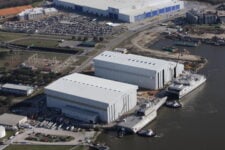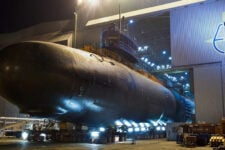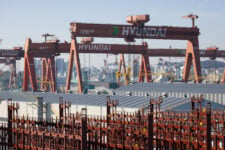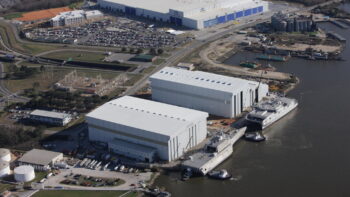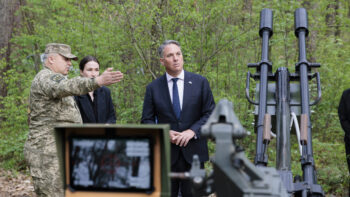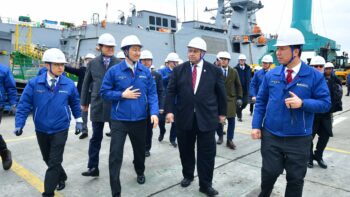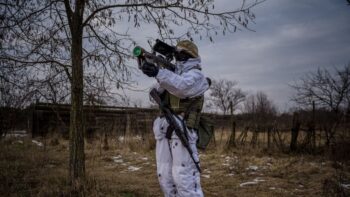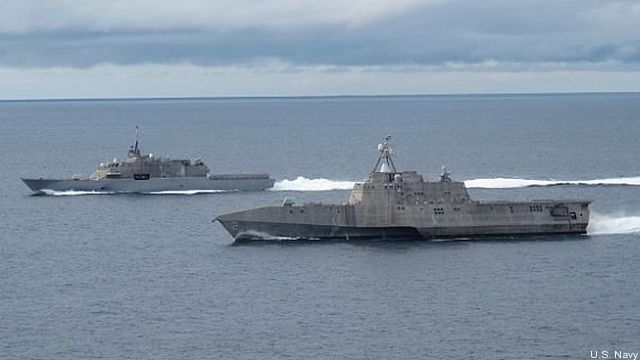
The two variants of the Navy Littoral Combat Ship — LCS-1 Freedom and LCS-2 Independence – side by side off the California coast.
WASHINGTON: Buried amidst the hundreds of pages of the National Defense Authorization Act for 2014 is an unusually sharp rebuke to a high-profile program, the Navy’s controversial Littoral Combat Ship.
The defense policy bill has yet to pass the Senate, but assuming the current language stands – and there’s tremendous political pressure not to mess with the long-delayed NDAA – it will levy a host of requirements on the LCS program that go beyond the pro forma “give us a report” so common in defense bills. What the act doesn’t do, however, is slow the program down in any significant way, let alone impose the “pause” that the Government Accountability Office called for (very half-heartedly) in a recent study.
Instead of restricting spending on the program until the Pentagon gives an official, in-depth answer to Congress’s questions – the usual formula – the NDAA language makes two distinct and separate demands. The first is an official review by the Joint Requirements Oversight Council, a Pentagon body composed of the vice-chiefs of the armed services and generally considered a rubber stamp – but a very slow and ponderous one.
The second, harsher requirement is for a “coordinated” evaluation of the LCS test program not only by the Pentagon’s acquisition chief but also by the independent Director of Operational Test and Evaluation, which is famous for its harsh assessments of the LCS and other weapons.
DOT&E must specifically sign off on the LCS’s survivability in combat, which is perhaps the single most controversial aspect of the relatively lightweight vessel, and one DOT&E has criticized in the past. It also must examine the LCS’s mechanical and electrical breakdowns (“casualties” in Navy-speak), which have been a major blight on the Pacific deployment of the first Littoral Combat Ship, the USS Freedom.
But what’s the pain put on the program until it passes these tests? Not that much, in truth. The bill would prohibit spending any money for “construction or advanced procurement of materials” for LCS 25 and LCS 26. But Littoral Combat Ships 5 through 12 are still under construction, while ships 13-16 are “in pre-production phase.” LCS 17-24 are still awaiting Congressional authorization. 25 and 26 are a long way in the future, and if there’s any impact on their production it won’t be felt for years – and there’ll be plenty of opportunities to make up for lost time.
Congress has clearly registered its displeasure – but it’s also aware that, for good or ill, it’s way to late to stop this ship.
Shipbuilder Austal USA names Michelle Kruger as new president
Kruger had been serving as interim president since former chief Rusty Murdaugh resigned last spring.
